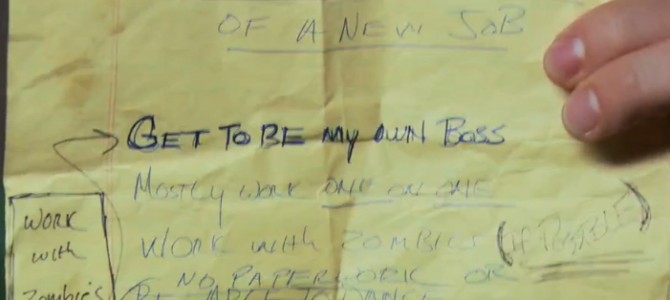I frequently meet students looking to become social entrepreneurs after they graduate. They are seduced by the idea of freedom, making a difference and not having “vacation days.” When I meet these students I often ask, “What is your big idea?” I am responded to with a shrug, indicating they will figure it out once they get real world experience. Used to hearing more traditional advice like get an MBA or work in consulting, they are surprised when I suggest a year of service with a program like AmeriCorps.
How can serving in the nonprofit sector prepare you for the day when you start a business?
1. Expand Your Ability to Serve
Customer service is the new marketing. With the rise of social media platforms and comment boards, every brand is subject to word-of-mouth affecting sales. The most successful companies are those who treat their customers with a heart of service. What better way to understand service then to spend a year working in the nonprofit/social services sector?
2. Learn to Make Money go Far
Projection Hub recently gave a break down on how start-ups are funded. They noted that 34 percent are bootstrapped, literally funded off the founders’ personal savings. Translation: founders have little to no paycheck for at least a few months during the startup phase. And for founders operating on borrowed money, salaries tend to be skimpy early on while investors wait for proof of concept.
To work at a startup, you must be able to create and market products on a shoestring while also living on a minimal salary. Service year programs, like AmeriCorps and Peace Corps, offer you the opportunity to live on a stipend (enough money to cover room and board). Service members are placed to work at nonprofits. That role gives you the opportunity to practice creative ways to market and provide services with out spending money.
Founders coming off of a term of service are already equipped to bootstrap their new startup.
3. Selling an Intangible
Being effective at sales takes practice. People often think that because most nonprofits are not product based and discounted services that there is no selling. In fact the opposite is true. Nonprofits are funded by donations and grants, meaning that the staff are responsible for selling an idea or vision. Wendy Kopp funded Teach For America by selling the idea, “One day all children in this nation will have the opportunity to attain an excellent education.” Yup, people gave her money and the only thing they got in return was a tax donation receipt and the knowledge that they are part of something great. This is not much different than when an investor writes a check for your half-baked app idea that has not even been built or market tested. If you want to start a business, you better know how to sell an idea.
4. Long Job Descriptions
82 percent of nonprofits with a staff have 1-10 employees. This means there are 1-10 people trying to take on the mission of ending homelessness in their town, raising the reading level of every child in a low-income school district, providing a safe place for all the victims of domestic violence in a zip code. To execute on these missions, each staff member (and service year member) must take on multiple roles spanning from events planning to marketing to administration. This is similar to when a founder starts a company. On paper, they are a CEO, but they are also the accountant, the data-entry specialist and the blogger. It is important to be able to learn skills fast and be able to switch between roles if you want to work in the startup world.
5. Family Style Workplace
Both nonprofits and startups tend to have tight-knit teams that are inspired by passion. They work together on the weekend and grueling late nights. Co-workers know who you are dating and when your father is in the hospital. They are like family. This type of work environment can come with challenges and drama. It is important to learn how to navigate these types of relationships sooner rather then later.
Real Service Alumni Running Social Enterprises
Meet 20 social entrepreneurs that started their career with a year of service on next week’s Journey to Social Entrepreneurship Virtual Summit. We are connecting with alumni from Peace Corps, AmeriCorps, City Year and Teach for America who leveraged the skills learned in their term of service to launch a start up that is working to solve today’s complex issues.
Register for your free spot today.
By Anna Lenhart
Founder, Next Generation of Service
Founder, Anani Cloud Solutions
Past employee of 3 start-ups
AmeriCorps Alum 



